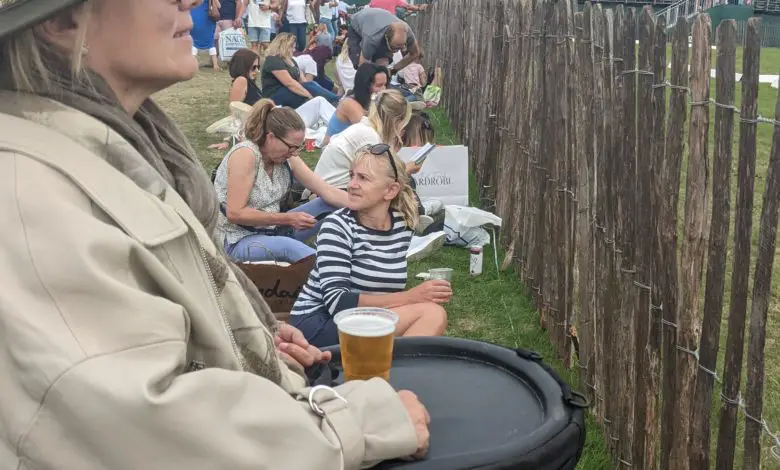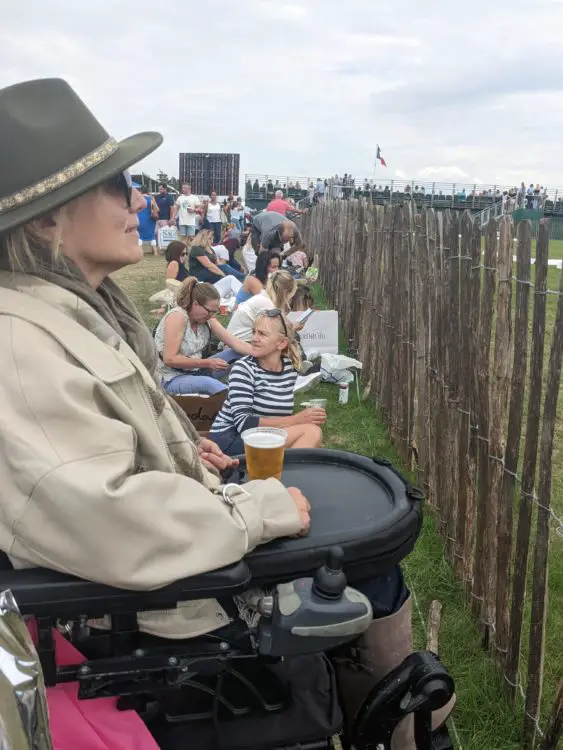
How to Maintain Friendships When Health Issues Get in the Way
🗂️ Key Takeaways
| Insight | Summary |
|---|---|
| Friendships shift with health changes | It’s natural for social lives to look different when health is unpredictable. |
| Honesty helps friendships last | Clear, compassionate communication helps everyone feel more at ease. |
| Friendship doesn’t always mean face-to-face | Voice notes, shared playlists, and quiet connections matter too. |
| Make plans easier, not bigger | Simple adjustments can keep social time realistic and enjoyable. |
| Friendships fade—and new ones form | Letting go can make space for relationships that truly work now. |
How to Keep Friendships Going When Health Gets in the Way
Friendship doesn’t always survive life’s bigger changes. And when your body becomes less predictable—thanks to pain, fatigue, flare-ups, or accessibility issues—those changes can show up fast. You might cancel plans more often. You might stop getting invited. Some people drift away without warning. Others stay, but don’t seem to get it.
If leaving home or engaging in social activities is a challenge, you can learn how to make friends online to expand your circle. Platforms like Zoom, WhatsApp, Messenger, and Facebook allow people to connect with others from anywhere in the world.
This isn’t a personal failure. It’s just something that happens when life reroutes. Still, most people want the same thing at the end of the day: connection, warmth, and someone to share the odd laugh (or moan) with. So how do you make that happen when your health doesn’t always cooperate?
Friendship Doesn’t Always Look the Same
For disabled people and those with chronic health conditions, the usual ways of socialising—nights out, impromptu meetups, travel—can feel miles away. But friendship doesn’t have to mean doing things the traditional way.
Connection can be slower, quieter, and still completely real. Think short doorstep visits instead of long catch-ups. A weekly voice note. Messaging when you can, and leaving space when you can’t. Swapping memes or making a shared playlist. All of these count.
Friendships evolve with time, and it’s okay if they shift shape.
For me, meeting at home or somewhere familiar and accessible makes a huge difference. I’ve learned that it’s not about grand plans—it’s about having what I need nearby and not feeling like I’m pushing through discomfort just to be sociable. When that’s not possible, simple things like WhatsApp messages or voice notes keep the connection alive, even on my busiest or hardest days.
It Starts with Saying What’s True
Honesty is awkward sometimes—but also freeing. Telling a friend, “I really want to see you, but I might need to cancel depending on my health,” sets the right tone. It takes the pressure off, and it signals trust.
This kind of clear communication can be the difference between guilt and ease—on both sides. Friends don’t need a full medical rundown. But giving them a heads-up about what you need (or can’t manage) is one way to protect the friendship without pretending everything’s fine when it’s not.
I’ve had moments where I told a friend, “We can’t go there—it has steps,” and they just didn’t register it. It’s not malice; it’s that they’ve never had to notice. Being honest—even when it feels awkward—often helps shift that perspective. And when friends do finally get it, it’s a relief on both sides.
Online Doesn’t Mean Unreal
When leaving the house isn’t easy—or safe—online friendships offer something genuinely valuable. The rise of platforms like Zoom, Messenger, and WhatsApp means socialising doesn’t have to rely on showing up in person.
These connections can feel just as close, especially when both sides make the effort. You don’t need to chat every day. But knowing someone’s out there, ready to reply when you can check in, can bring real comfort.
When we couldn’t meet in person, I created a WhatsApp group with a few close friends. We’d share photos, voice notes, and the odd silly meme. It helped recreate that feeling of just “being around” each other, even when we were miles apart.
Accessibility Makes Plans Work Better
Sometimes it’s not the friendship that’s fading—it’s the plans that aren’t accessible. Cafés up steps. Long train journeys. No quiet seating or toilet access.
But that’s fixable. Shorter visits, flexible venues, and rest breaks can all make a difference. If you’re inviting someone with access needs, just ask: “Is this place okay for you?” or “What would make this easier?”
These questions show thoughtfulness without fuss.
I’ve definitely had to advocate for myself—but it’s a balancing act. You don’t always want to be the one making a fuss or ‘ruining’ a happy occasion. Sometimes you just go along and do your best, even though part of you wishes it had been thought through differently. It’s exhausting, constantly weighing when to speak up and when to let it slide.

Friends Who Get It—And Friends Who Learn
Being friends with someone who’s chronically ill or disabled isn’t about doing grand gestures. It’s about listening, not assuming. Being patient when they go quiet. Understanding that plans might change without warning.
If you’re not sure how to help, just ask: “Would it be helpful if I…?” Respect what they say, even if the answer is “No thanks.”
Support isn’t about fixing. It’s about being steady, without trying to save.
The friends who really understand are the ones who don’t take it personally when I cancel. They know I’m not flaking—I’m managing. That kind of quiet trust is worth everything.
What Disabled People Want You to Know
Sonya, a disabled podcast host, puts it simply: “We’re just like you—we just do things differently. Don’t make it a big deal. Don’t keep bringing up our condition. Just treat us like people.”
Others point out how easily invisible disabilities get dismissed. “I look okay, so people assume I’m fine,” says Irene, who has rheumatoid arthritis. “One friend even accused me of faking. That still hurts.”
That’s why it helps to believe people the first time. No need for proof or explanations.
You don’t need constant contact to stay close. Some of the best friendships can be rekindled with one message, even after a long gap. Just reach out—chances are, they were worried about imposing or unsure how to include you. Take the first step when you can.
When Friendships Don’t Survive
It’s painful when a friendship fizzles out—especially when you didn’t want it to. But sometimes, a connection that worked before doesn’t work anymore. Maybe they can’t handle your reality. Maybe they’re not listening. Or maybe you’re the one who’s tired of keeping up a dynamic that no longer feels fair.
Letting go can make space for friendships that feel mutual, warm, and possible in your current life.
Losing that friendship hurt—but I realised I was the only one putting in the effort.
Final Thoughts
Being unwell can change how friendship fits into your life. That’s true. But it doesn’t mean you stop needing people—or being worth their time.
Friendships might look different now. They might be quieter, smaller, or less regular. But they can still be real. Still be joyful. Still be yours.